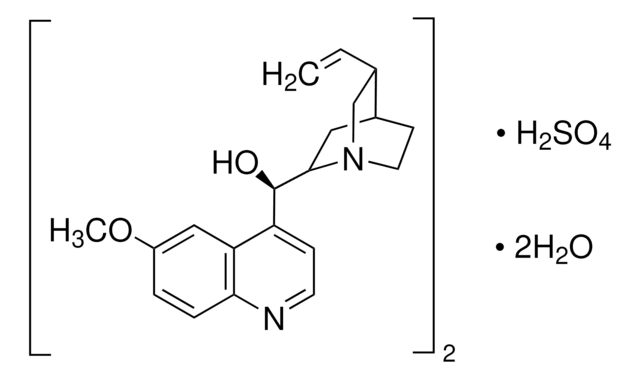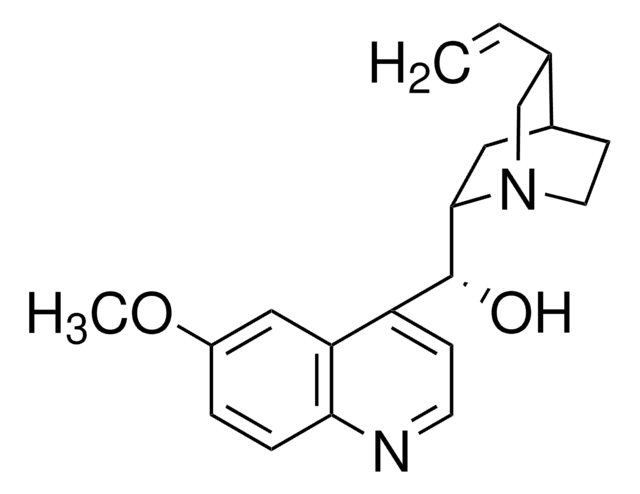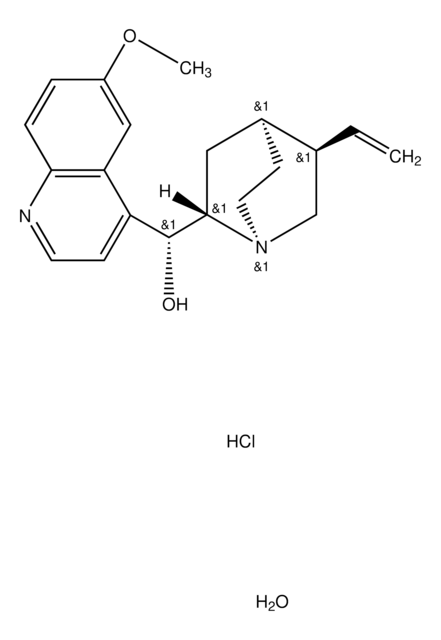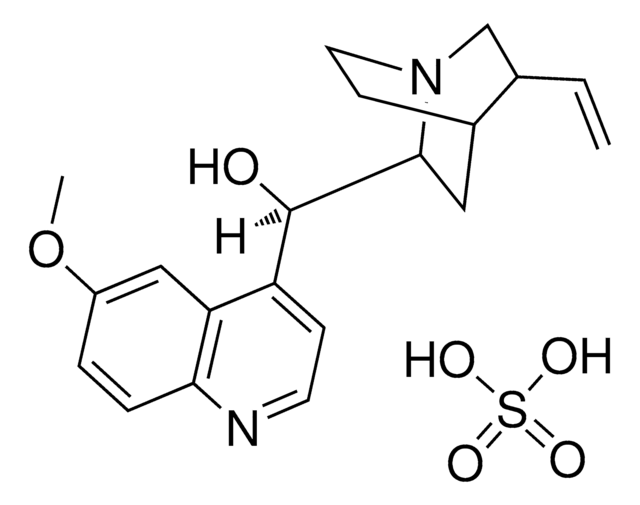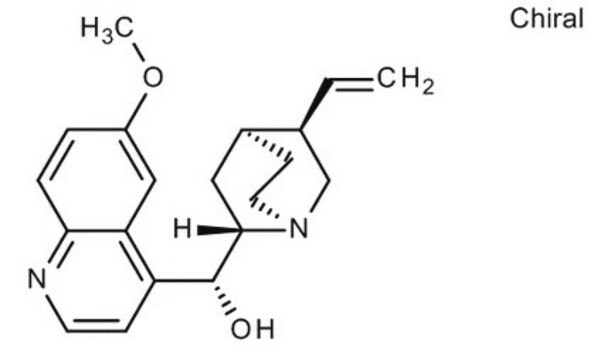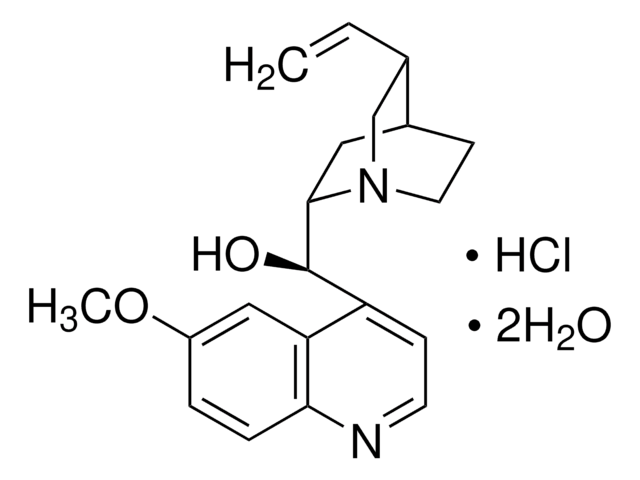Q0132
Quinine sulfate
meets USP testing specifications, monograph mol wt. 782.94 ((C20H24N2O2)2 . H2SO4 . 2H2O)
Synonym(s):
Quinine hemisulfate salt monohydrate, Quinine sulfate (2:1) (salt) dihydrate
About This Item
Recommended Products
Agency
USP/NF
meets USP testing specifications
mol wt
monograph mol wt. 782.94
mp
~225 °C (dec.) (lit.)
antibiotic activity spectrum
parasites
Mode of action
enzyme | inhibits
SMILES string
O.O.OS(O)(=O)=O.COc1ccc2nccc([C@@H](O)C3CC4CCN3C[C@@H]4C=C)c2c1.COc5ccc6nccc([C@@H](O)C7CC8CCN7C[C@@H]8C=C)c6c5
InChI
1S/2C20H24N2O2.H2O4S.2H2O/c2*1-3-13-12-22-9-7-14(13)10-19(22)20(23)16-6-8-21-18-5-4-15(24-2)11-17(16)18;1-5(2,3)4;;/h2*3-6,8,11,13-14,19-20,23H,1,7,9-10,12H2,2H3;(H2,1,2,3,4);2*1H2/t2*13-,14-,19-,20+;;;/m00.../s1
InChI key
ZHNFLHYOFXQIOW-LPYZJUEESA-N
Looking for similar products? Visit Product Comparison Guide
Application
Biochem/physiol Actions
Signal Word
Warning
Hazard Statements
Precautionary Statements
Hazard Classifications
Eye Irrit. 2 - Skin Irrit. 2 - STOT SE 3
Target Organs
Respiratory system
Storage Class Code
11 - Combustible Solids
WGK
WGK 3
Flash Point(F)
Not applicable
Flash Point(C)
Not applicable
Personal Protective Equipment
Choose from one of the most recent versions:
Already Own This Product?
Find documentation for the products that you have recently purchased in the Document Library.
Customers Also Viewed
Our team of scientists has experience in all areas of research including Life Science, Material Science, Chemical Synthesis, Chromatography, Analytical and many others.
Contact Technical Service